Training Seminars for Israeli Jewish and Arab educators, in their own traditions and that of the other, through shared text study of Jewish, Christian, and Muslim traditions, values, and culture.
All of us who live here in this land belong to rich, ancient cultural heritages, which at various points in history and in various places have shared in fruitful inter-cultural dialogue. Min HaBe’erot seeks to renew this dialogue and to draw new life from the reservoirs of these heritages.
Min HaBe’erot, a project of the Shalom Hartman Institute’s Center for Shared Society, trains Israeli Jewish and Arab educators and civic leaders to become committed partners in developing interreligious and intercultural educational opportunities for their schools and communities. By using the study of Jewish, Muslim, and Christian identities, cultures, and texts as a tool, MHB participants grow increasingly confident in their ability to lead colleagues, students, and broader communities in seeing each other with a more respectful, pluralistic, and tolerant outlook.
MHB has trained more than 200 Jewish and Arab educators to develop a values-based discourse that has influenced their personal and pedagogical worldviews and informed their work as educators, opening them up to the possibility of fostering a more authentic and grounded shared society between Arab and Jewish citizens.
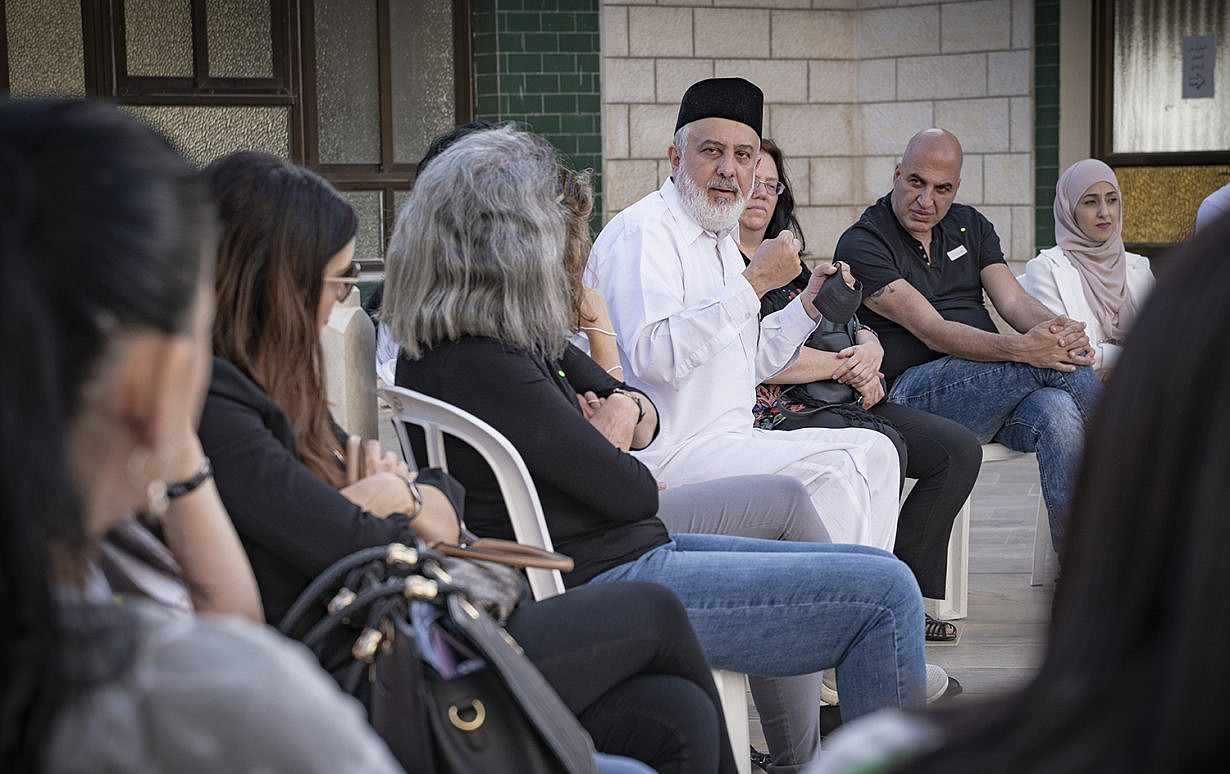 | 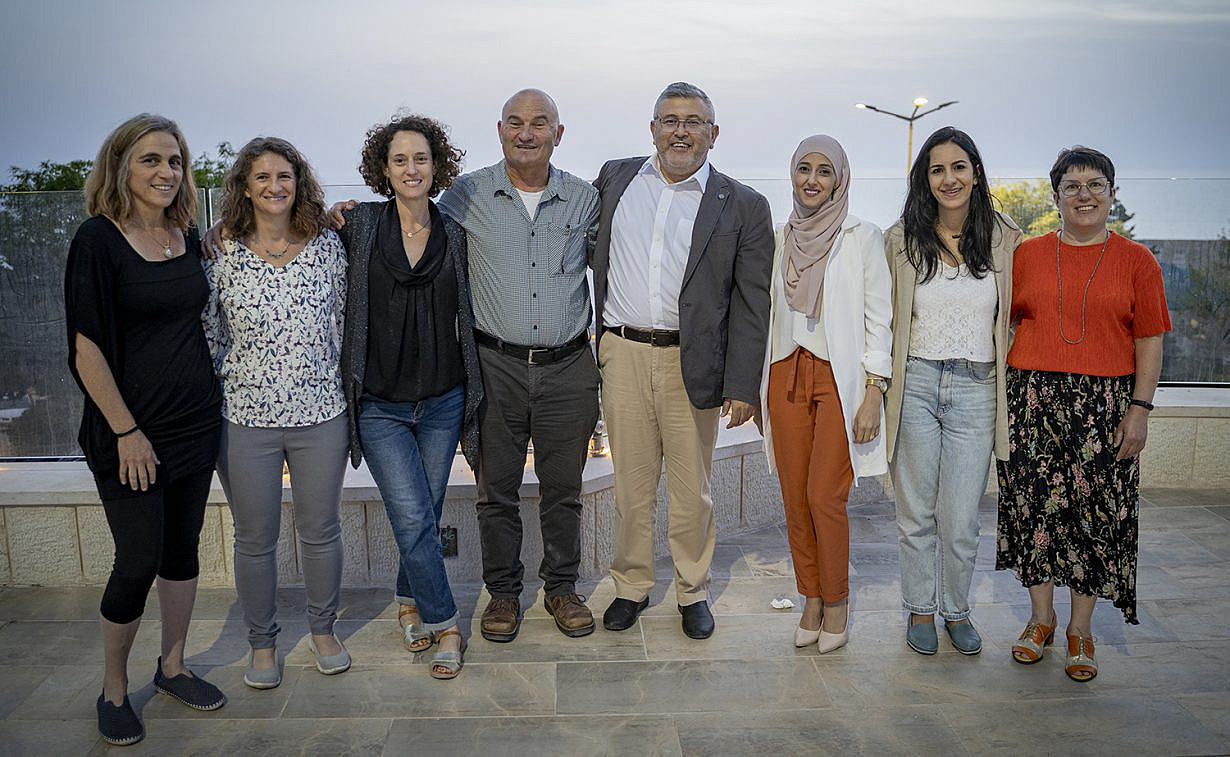 |
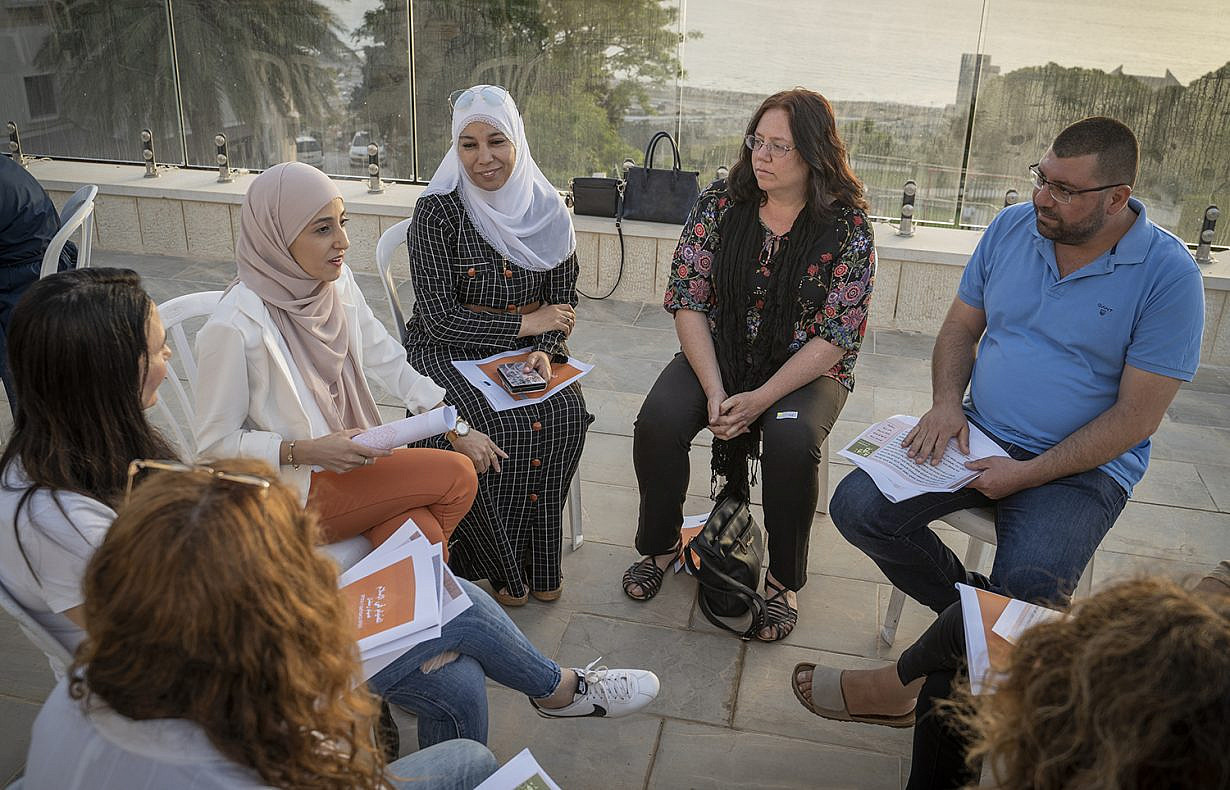 | 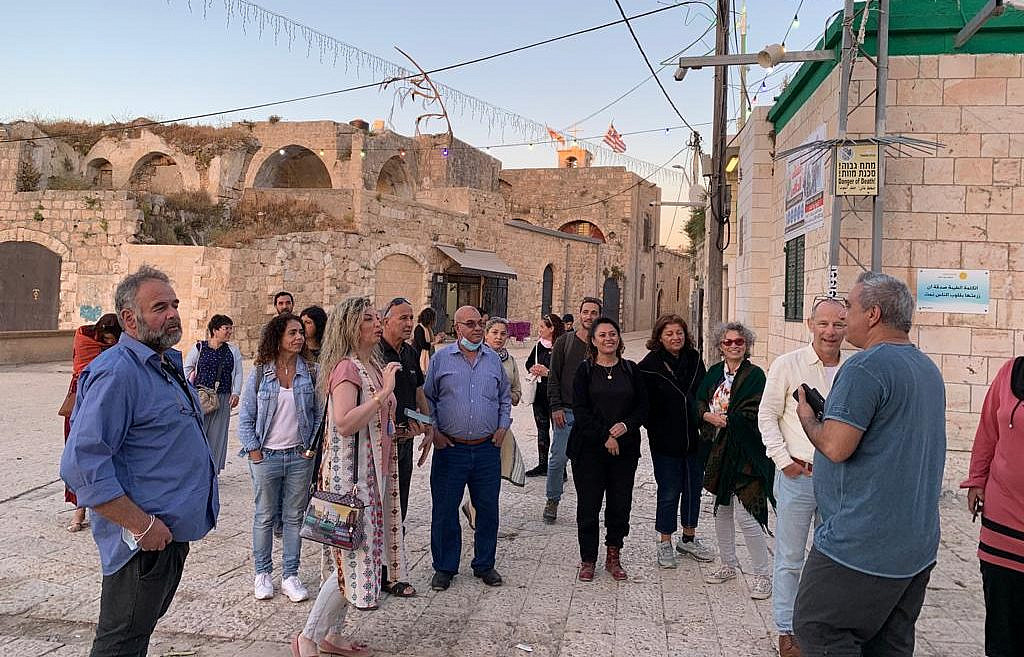 |
Min HaBe’erot runs joint programs for Jewish and Arab school faculty, community center directors, and students from Jewish and Arab schools in cities and towns where the different demographics live in proximity to one another’s communities including Haifa, Akko, Fureidis, Gilboa Regional Council, Misgav, Sakhnin, Lod, Modi’in, Kfar Qassam, Tayibe, and Ramla. This model systematically builds a basis for thousands of educators and students to engage in deep discourse on religious and cultural identity, which serves to increase civic engagement, reduce discrimination, and improve chances for reconciliation and desire for a shared society in Israel for all citizens. By connecting students from different sectors with one another, within a formal school classroom context, MHB can change youth’s perceptions and worldviews still in formation to serve as a foundation for sustainable partnerships between Jewish and Arab communities across Israel.
MHB’s program currently includes joint learning opportunities and activities for students and educators in pairs of Jewish and Arab schools; training courses for educators and community center directors and staff; ongoing professional and pedagogical support for alumni; and development and distribution of original, bilingual Arabic-Hebrew educational resources. The educational change agents MHB reaches through these different approaches – teachers, principals, community leaders, heads of Departments of Education for local regions – will create new, positive, and multicultural discourse between Jews and Arabs in Israel.
Teachers and educators talk about learning, experiences, and internal changes following participation in the Min Habe’erot program.
We are grateful to our funders for their partnership and support of our initiatives.
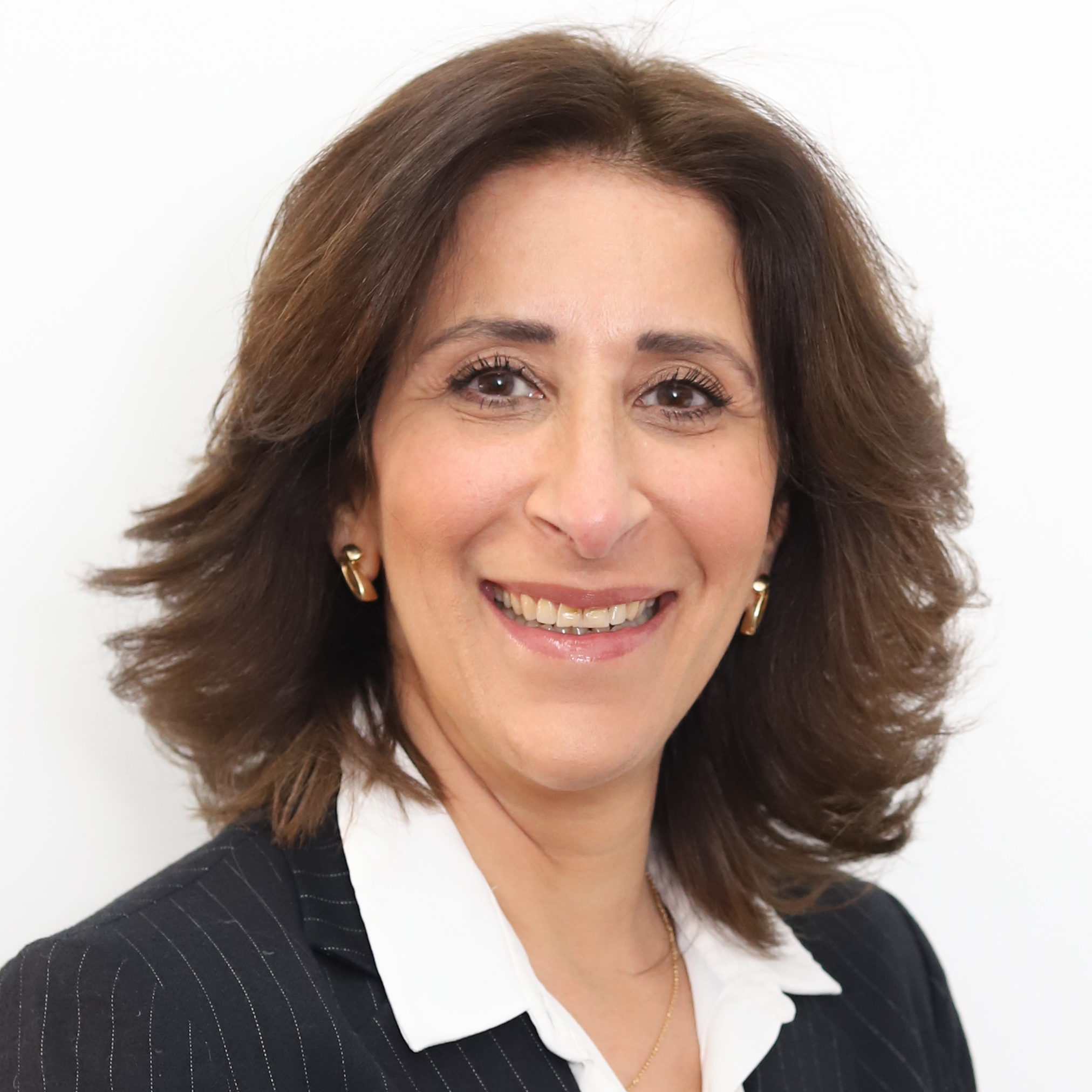
Director, Center for Shared Society
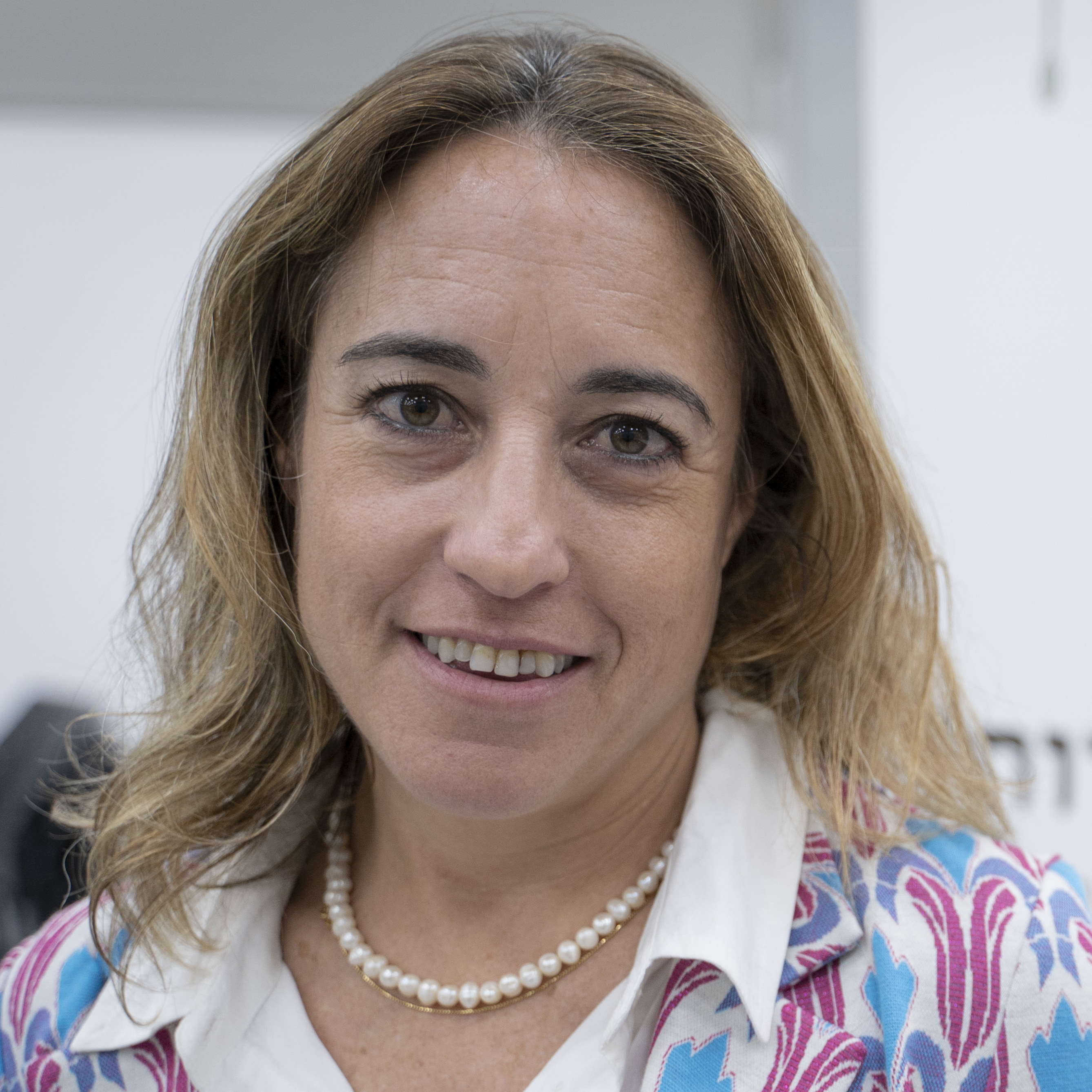
Director of Min HaBe'erot
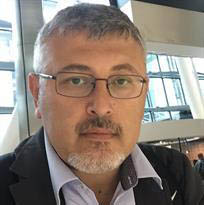
Academic Advisor, Min HaBe'erot

Educational Director, Center for Israeli & Jewish Identity and Research Fellow